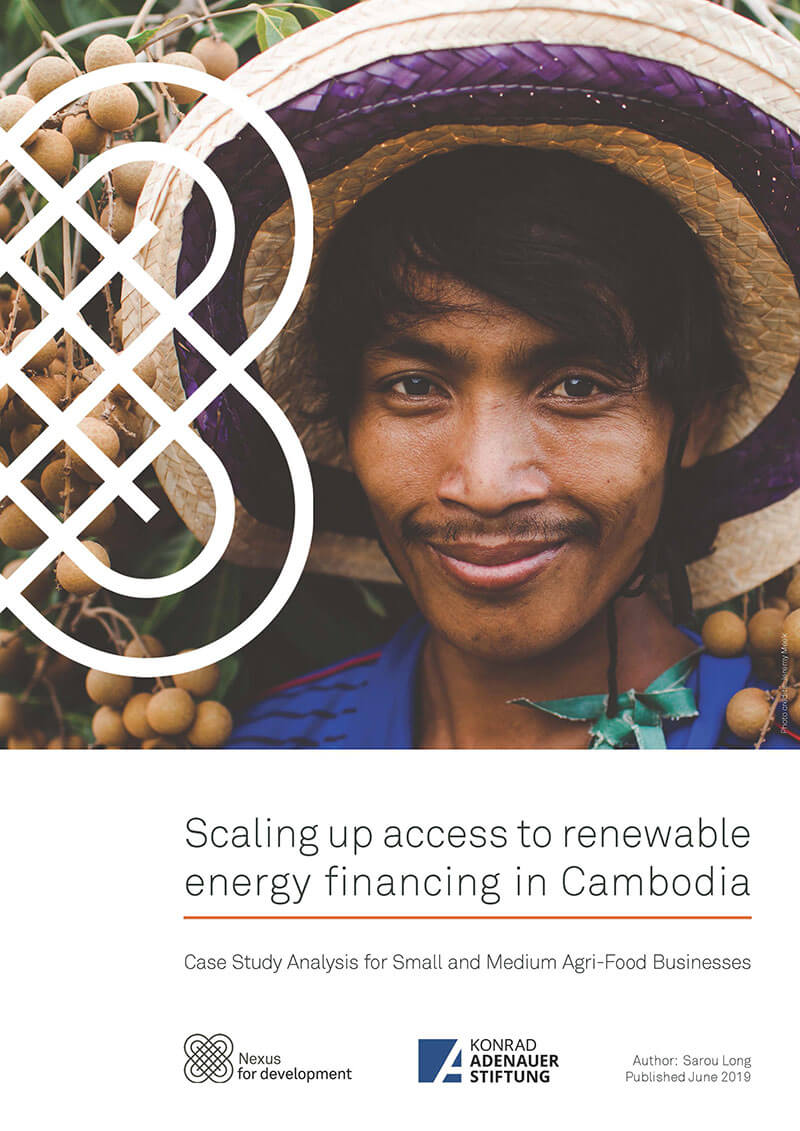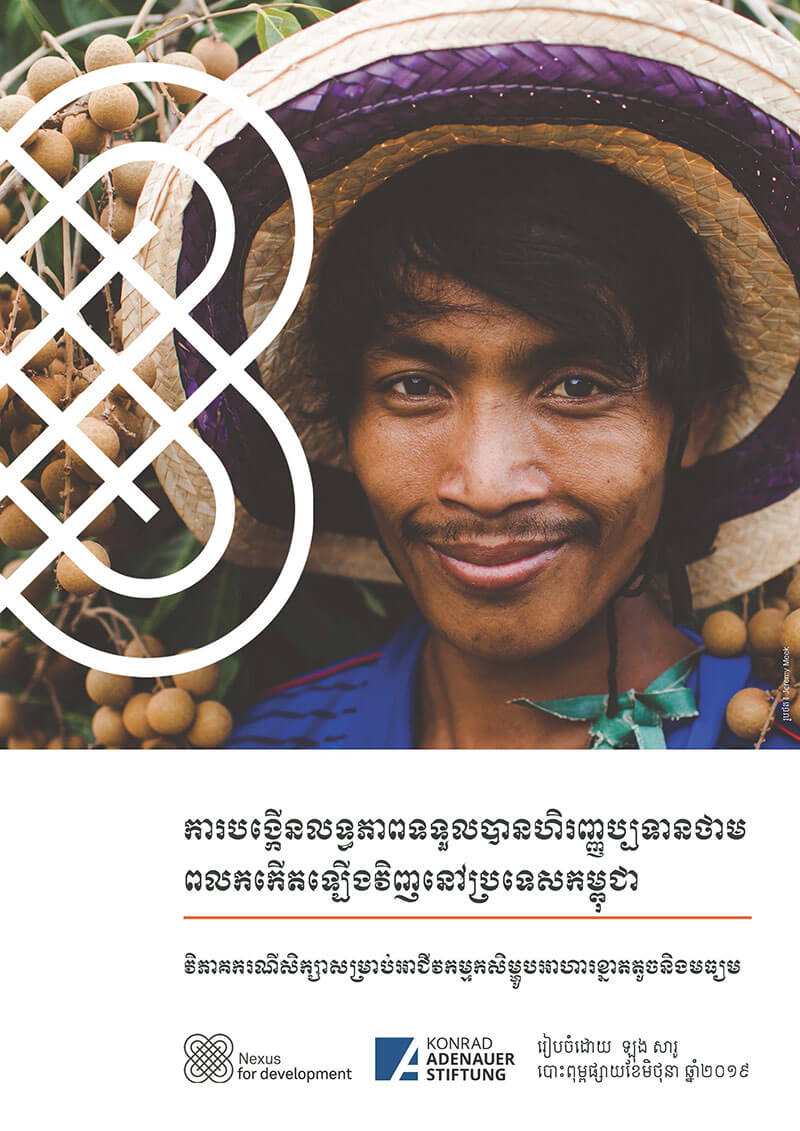Case Study Analysis for Small and Medium Agri-Food Businesses
The agriculture sector plays a key contributory role to Cambodia’s economic development. However, Cambodian farmers have difficulty competing with neighboring countries such as Thailand and Vietnam given their high dependency on grid electricity, which is expensive and unreliable. About 6.9 million people, or 43.1% of the country’s population, have no access to dependable electricity in Cambodia. This issue is more prevalent in rural areas where the farmers operate and results in many farmers turning to alternative sources with a predominant reliance on back-up diesel generators, which leaves farmers vulnerable to diesel price fluctuations and also contributes to greenhouse gas emissions. Fossil fuel energy sources in the agricultural sector are expensive, inaccessible, and unreliable. These difficulties hinder agricultural productivity, which has major impacts on the country’s prospects for sustainable economic growth and development.
There are increasing opportunities for Cambodian people in rural and remote areas to gain access to electricity through the installation and use of renewable energy (RE) technologies. Access to affordable, reliable, and RE is “a vital input for a productive agriculture value chain”, and thus RE technologies such as solar systems and biogas digesters have already gained some traction and have been adopted by Cambodian farmers. Despite the potential for widespread use of RE technologies in Cambodia, the adoption rate remains low. Key barriers to broad adoption are lack of awareness and experience, lack of trust in the technology, and high upfront costs, but the most crucial inhibitor is a lack of access to appropriate financing alternatives.
Although Cambodia has one of the most vibrant microfinancing sectors in the world, RE loan products are not considered as a potential market by local financial institutions (FIs). The FIs are hesitant to engage in RE investments as they believe market opportunities are limited and investments are risky and unprofitable. In addition, the FIs do not have a good understanding of renewable energy technologies offered in the market, the requirements of an energy assessment to support due diligence and risk management, or the possible return prospects for such investments.
The purpose of this research is to provide an evidence-based assessment of RE opportunities in the context of small and medium agri-food businesses and farmers in Cambodia in order to offer recommendations to FIs on the key entry points into the RE market and financing opportunities with suggestions on appropriate business models to match these entry points.
Based on our focused survey results, energy costs represent between 6% to more than 50% of the operational costs for farmers in Cambodia, depending upon the size of farm and type of crops or livestock. Given the significant proportion of energy costs to operational finances, all respondents surveyed acknowledged and expressed their willingness to adopt RE technologies. Our survey further found that respondents were most interested in bank loans and other debt products where interest rates are below 12% per annum. If the FIs wish to expand their services beyond business lending, the study results suggest that RE financing for SMAs and farmers emerges as a potential new market segment. By entering this new market, the FIs can play a key role in increasing access to RE technologies in the agri-food sector in Cambodia.
About 80% of respondents claimed that they had taken loans from a FI to support financing requirements for the operation of their farms. Therefore, offering loans for RE technology purchases to existing clients and farmers represents a primary entry point that is a cost-effective option for FIs as there may be less time required for due diligence and loan assessments. In addition, this represents an opportunity to deepen their relationship with existing clients and to cross-sell other banking products. Furthermore, the survey indicates that approximately 62% of respondents are willing to consider the pledge collateral if banks offered RE loan products.
It is acknowledged that initially FIs may face some challenges due to a lack of expertise in technical aspects of RE products. The major knowledge gaps include: (1) a lack of expertise in helping farmers to assess product quotes and the quality of the respective RE products, (2) limited to no existing expertise in offering technical support to clients for product maintenance, and (3) a lack of knowledge to ensure that RE technologies are installed properly and will lead to the realization of any estimated cost savings. However, to design RE loan products the FIs can develop partnerships with technology providers, which would support the transfer of knowledge and necessary expertise. It is recommended that FIs also engage with other stakeholders such as NGOs and governmental agencies who are already working in the RE sector to support the successful design and delivery of their RE loan products.




